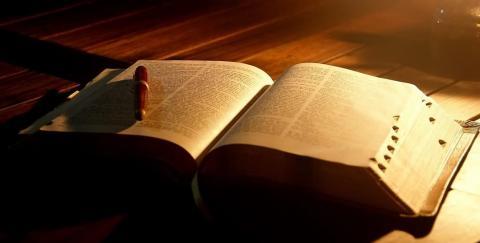Unleavened Bread

February 21, 2022
Now on the first day of the Feast of Unleavened Bread the disciples came to Jesus, saying to Him, "Where do You want us to prepare for You to eat the Passover?" (Matthew 26:17)
(Leviticus 23:4-6) These are the feasts of the LORD, holy convocations which you shall proclaim at their appointed times. On the fourteenth day of the first month at twilight is the LORD's Passover. And on the fifteenth day of the same month is the Feast of Unleavened Bread to the LORD; seven days you must eat unleavened bread. In the Hebrew lexicon, the term ‘unleavened’ bread comes from the word matzoh, which means ‘bread or cake without leaven (yeast)’. The word matzoh comes from a word which means ‘to drain out or suck’ in terms of greedily devouring the sweetness of something. It is possible that unleavened bread, while it may have been heavy and flat, may also have been sweet to the taste.
Scripture tells us that the Israelites were to eat only unleavened bread every year during Passover to commemorate the Exodus from Egyptian slavery. Since the children of Israel left Egypt in a hurry, they didn’t have time to properly prepare bread for the journey; there was no time for the bread to rise before baking, so it was made on that very first Passover without leaven (yeast). In describing this bread and why it was eaten, the Bible tells us (Deuteronomy 16:3): You shall eat no leavened bread with it; seven days you shall eat unleavened bread with it, that is, the bread of affliction (for you came out of the land of Egypt in haste), that you may remember the day in which you came out of the land of Egypt all the days of your life. Additional commands regarding eating unleavened bread are found in Exodus 12:8; 29:2; Numbers 9:11. Today, Passover celebrations include unleavened bread.
In Scripture, leaven (yeast) is almost always symbolic of sin. Like leaven that affects the whole lump of dough, sin will affect the entire person, church, community, or nation, eventually overwhelming it and bringing people into slavery to sin and eventual death (Galatians 5:9). Romans 6:23 says, the wages of sin is death, which is God’s judgment for sin. This is the reason Jesus Christ died - to provide a way out of this judgment for sin if man will repent of his sins, accept Christ as his Passover sacrifice, and have his heart changed so that he can conform his life to what God commands.
The Feast of Unleavened Bread pointed to Jesus Christ’s sinless life (as leaven is a picture of sin in the Bible, unleaven is the picture of no sin), making Him the perfect sacrifice for our sins. (John 12:24) Most assuredly, I say to you, unless a grain of wheat falls into the ground and dies, it remains alone; but if it dies, it produces much grain. Jesus’ body was buried on the first day of this feast, like a kernel of wheat planted and waiting to burst forth as the bread of life.
“Thank You, Lord, for Your perfect obedience to the Father, making You the perfect sacrifice for sin necessary to save us. While we are yet sinful, even as Christians, You cover our sin by clothing us in Your perfect righteousness. Thank You for this wonderfully gracious gift. Amen.”
Pastor
